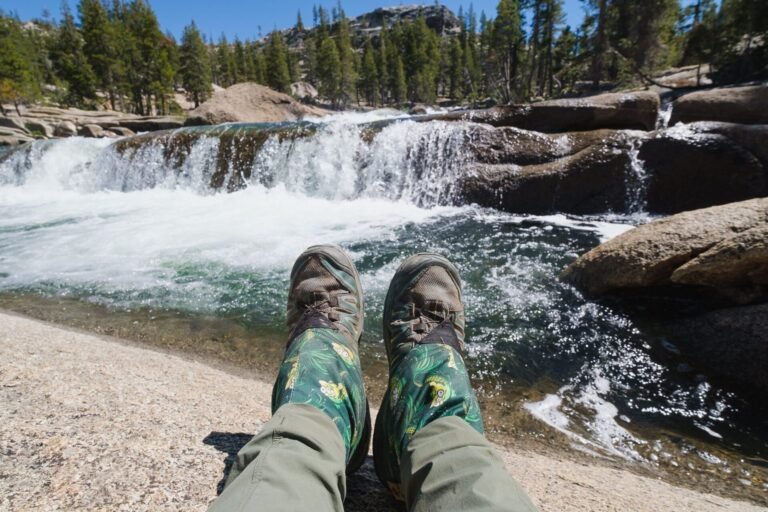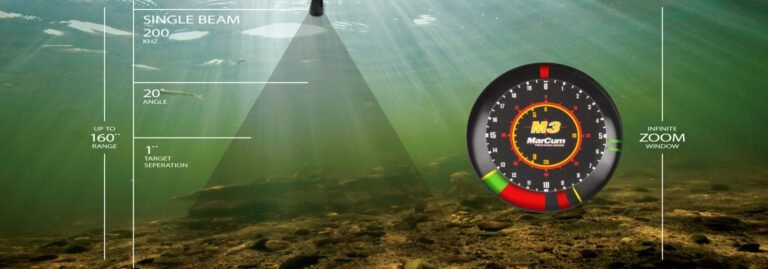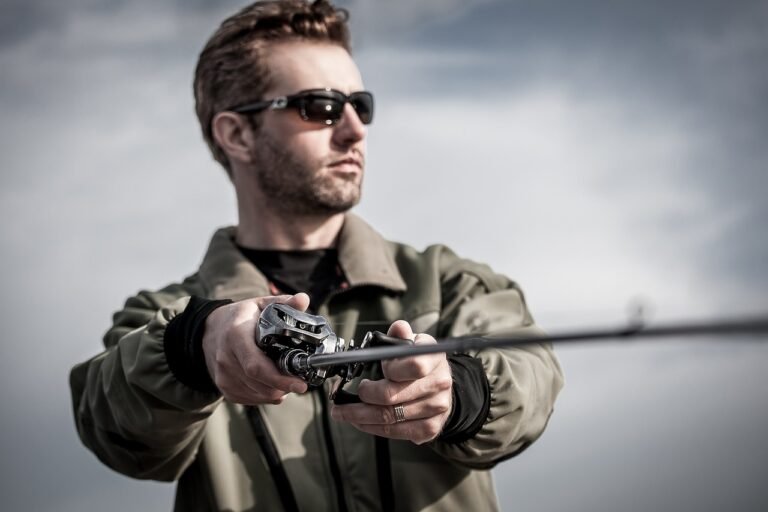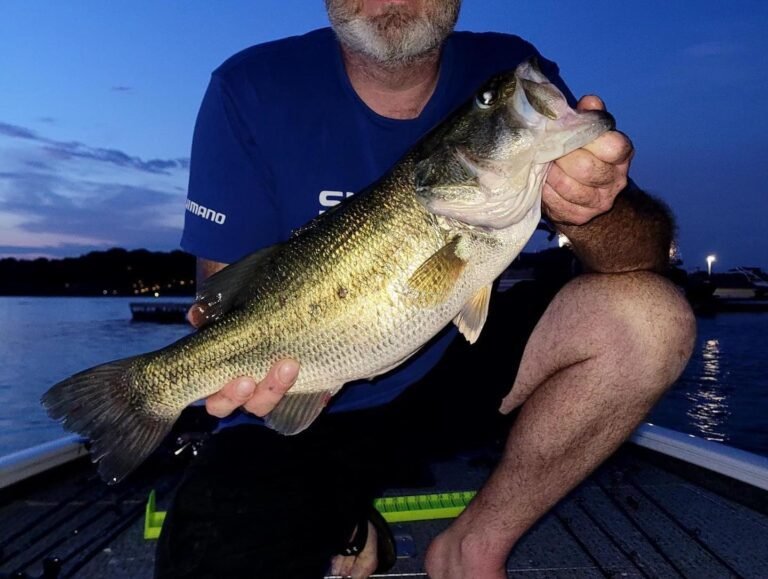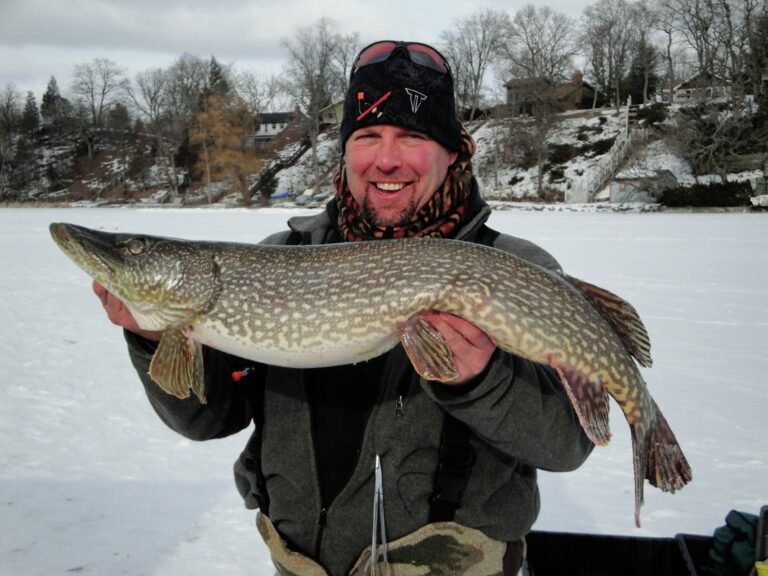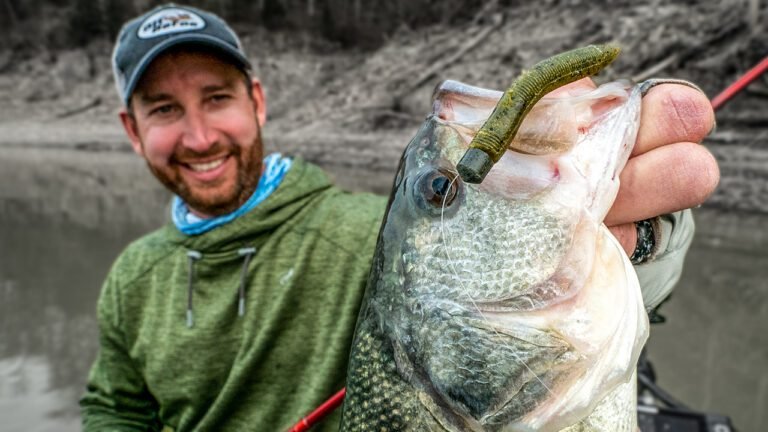Are you an avid fisherman ready to step it up and try offshore fishing? If so, you are in the correct spot. Although offshore fishing can be exciting and gratifying, it also requires a certain set of skills and techniques to be used effectively.
This article will give you a detailed guide on how to do offshore fishing. We’ll review everything you need to know to make your upcoming deep sea fishing trip successful, from selecting the appropriate gear, such as fishing line, fishing reel, and rod, to analyzing weather patterns and offshore fish behavior with instruments like GPS, sonar, and fish finder.
If you’re prepared to advance your fishing abilities and discover the big open oceans, this article is for you. So, gather your fishing gear, and let’s get started under the direction of industry professionals to make your offshore fishing experience one to remember!
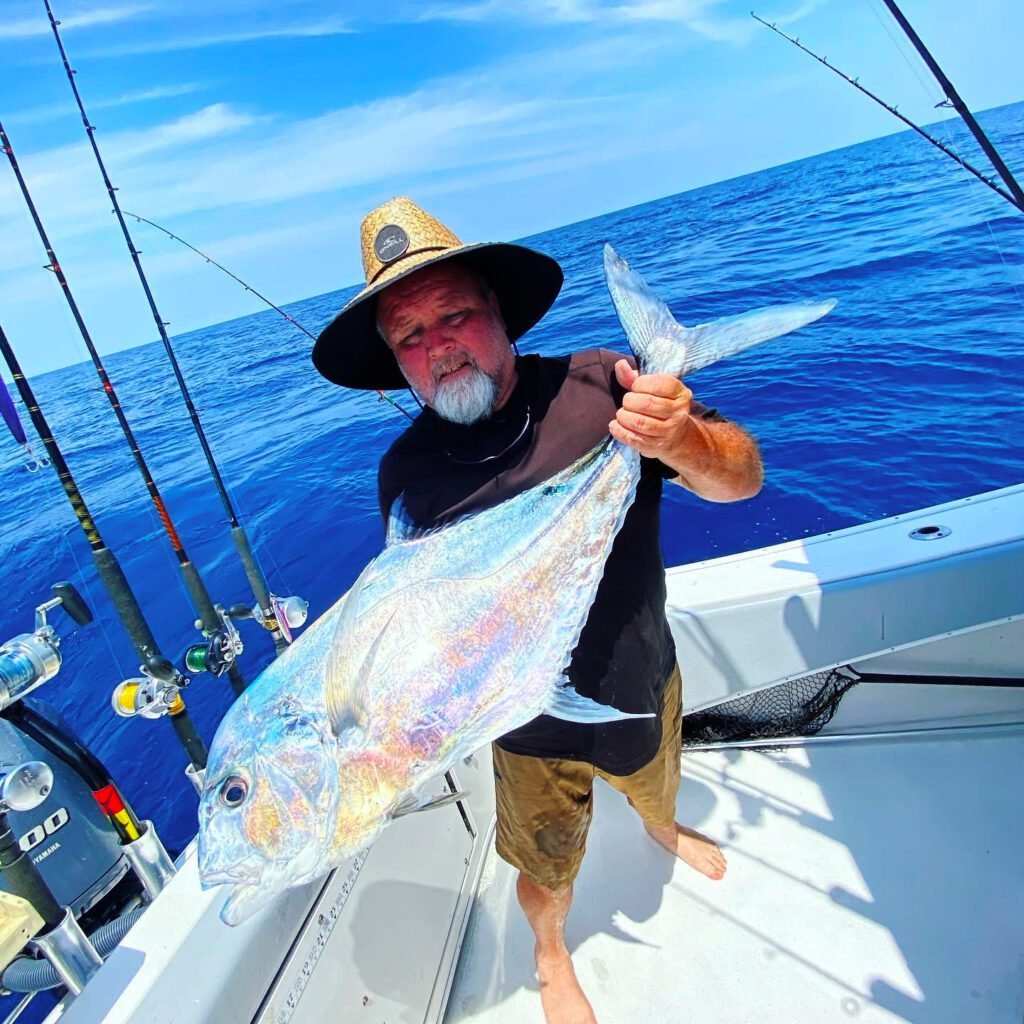
What Is Offshore Fishing?
Offshore fishing also known as the deep sea is the activity of fishing in the open sea, distant from the land, typically in seas that are at least 30 meters deep. Large boats with cutting-edge fishing and navigational technology like sonar, radar, and GPS are frequently used for this kind of fishing.
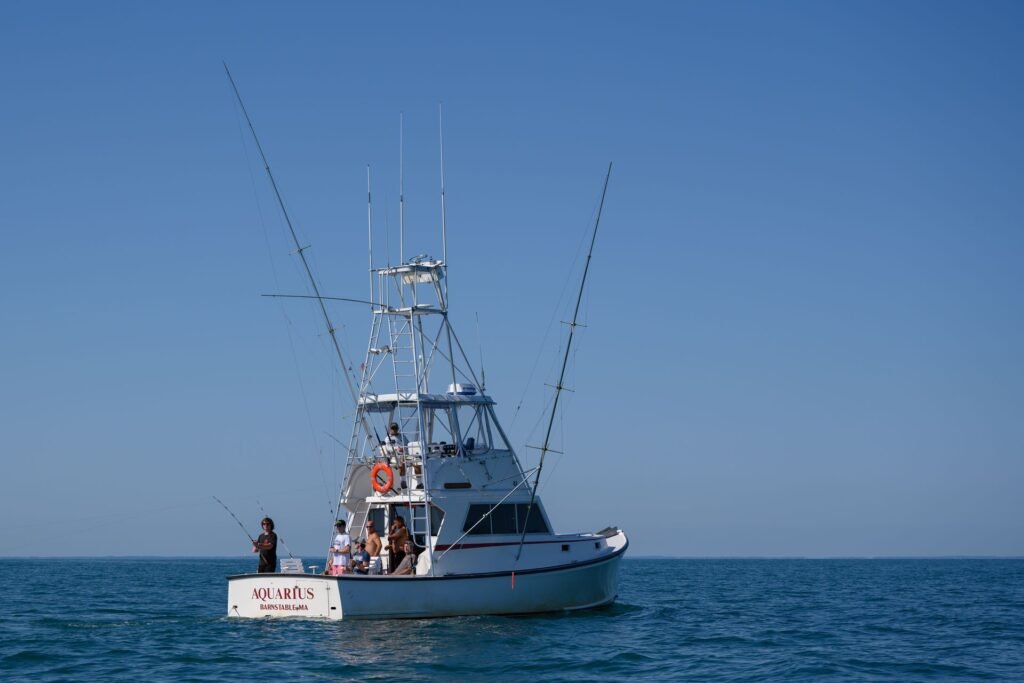
Equipment Needed for Offshore Fishing
You’ll need a few pieces of basic gear to go offshore fishing aka deep sea fishing. You will require the following:
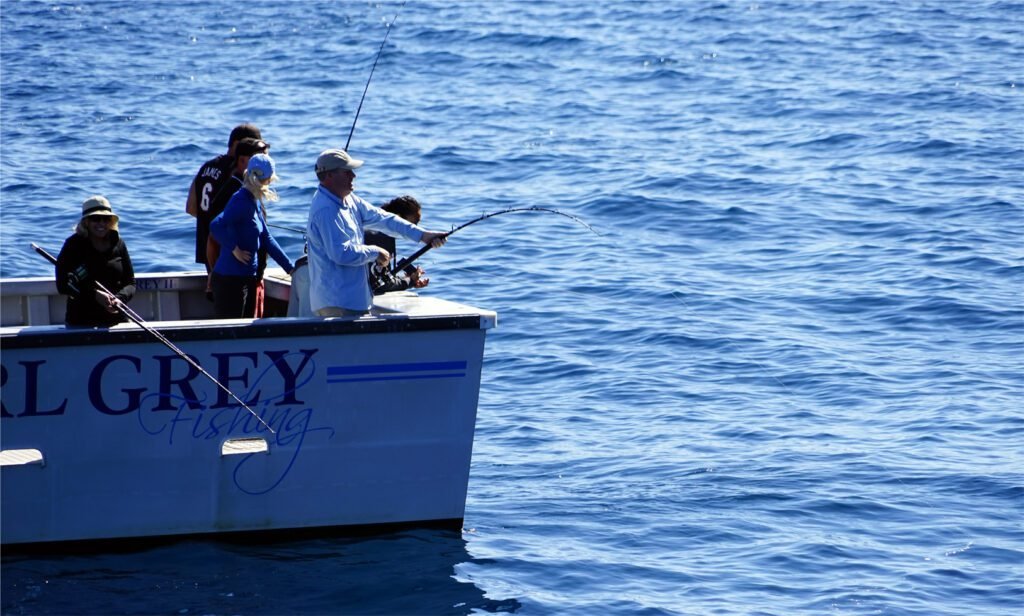
A Fishing Rod and Reel
A strong rod and reel set is the first and most crucial piece of gear needed for offshore fishing. You’ll need a rod and reel to handle heavier lines and lures since deep sea fishing includes catching tougher and big fish species. Seek for a rod and reel manufactured from premium components, such as graphite, fiberglass, and stainless steel, specially designed for deep sea fishing.
A Fishing Line
A sturdy and long-lasting fishing line is the next crucial gear for offshore fishing. Braided lines, stronger than monofilament lines and can support higher weights, are frequently required for offshore fishing because they are more abrasion-resistant. The line strength may vary depending on the sort of fish you’re after, but a decent rule of thumb is to use at least a 50-pound test.
A Terminal Tackle
The hooks, swivels, and sinkers fastened to the end of your fishing line are called terminal tackle. You’ll need sturdy, durable hooks for offshore aka deep sea fishing that can support the weight and power of larger fish species. As circle hooks are made to hook fish in the corner of their mouths, which makes it simpler to let them go back into the water, they are a popular choice for offshore fishing.
Lures and Baits
While fishing offshore or deep sea, you need to use lures and baits to draw larger fish species from deeper seas. Jigs, poppers, and deep-diving plugs are frequently used as deep sea or offshore fishing lures. If you want to use live bait, bring a variety of bait fish, such as sardines, mackerel, and squid.
Safety Equipment
You should bring safety gear since offshore fishing might be risky. Equipment contains flares, a first aid pack, life jackets, and a VHF radio for emergency assistance. To protect oneself from the elements, be sure to check the weather forecast, pack the right clothing, and use sunscreen.
Fishing Accessories
Finally, there are a few fishing gears that might improve the comfort and success of your deep sea or offshore fishing trip. It involves using a fish finder to discover schools of fish, using a gaff to land larger fish, and keeping your catch cold. You should also include a fishing chair, rod holders, and a tackle bag to organize your gear.
Preparing for Your Trip
You’ll need to make preparations before leaving for your offshore fishing expedition. Here are a few things to remember:
- Check the weather forecast
- Pack your equipment and supplies
- Check your fishing boat’s safety features
- Bring a first-aid kit
- Let someone know where you’re going and when you’ll be back.
How To Do Offshore Fishing – Detailed
If you’re interested in deep sea or offshore fishing, you’ll need to learn some efficient tactics to reel in those large fish catches. Here are some pointers on how to do offshore fishing for beginners like a pro!
Trolling
The first method is trolling, which involves dragging lures or bait behind a moving boat. This technique makes larger game fish like marlin and tuna especially easy to capture. The trick is to move at the proper depth and speed, which might vary depending on the fish you’re after and the water’s conditions.
Bottom Fishing
Bottom fishing is another well-liked method of deep sea or offshore fishing. As the name implies, this method is dropping bait to the ocean floor and waiting for bottom-dwelling species like grouper and snapper to bite. Use a large weight to keep your bait near the bottom, and be prepared for a tug on your line!
Drift Fishing
The last method of fishing is drifting, which employs lures or live bait to draw fish while drifting with the current. Many species, including tuna and mahi-mahi, can be caught with this approach. To increase your chances of landing a fish, it’s critical to monitor your bait and modify your drift as necessary.
Offshore Fishing Tips For Beginners
Now that you understand the methods of how to do offshore fishing, here are some secret tips to assist you in having a good trip:
FISHING TIPS
Be patient – It could take some time before you catch anything when you go offshore fishing since it can be unpredictable. Continue trying, and don’t give up.
Keep your eyes open – Birds are a good indicator of fish presence, so keep looking for them.
Follow the tides – Plan your fishing adventure properly since fish are more active during specific tidal times.
Use the right technique – Fishing methods can vary depending on the species. Choose the fishing methods that work best for the kind of fish you intend to catch.
Stay safe – Offshore fishing can be risky, so take all essential safety precautions.
Common Offshore Fishing Mistakes to Avoid
Here are some common mistakes that beginner offshore fishermen make and how to avoid them:
- Using the wrong bait or lure
- Not paying attention to the weather
- Overestimating your skills
- Not using a leader
- Not checking your equipment before you go
How to Choose the Right Boat for Offshore Fishing
For offshore fishing, picking the correct boat is crucial. You’ll need a boat that can withstand the rough ocean seas. It must be strong and steady. While selecting a boat, keep the following in mind:
- Size and weight
- Hull design
- Engine size and horsepower
- Safety features
- Fishing amenities
Inshore Fishing vs Offshore – Which Is Better
Inshore fishing and offshore fishing are two distinct types of fishing experiences, dependent on where you fish.
Inshore fishing is angling in shallow coastal waters such as bays, estuaries, flats, and nearby reefs. Smaller fish species, including redfish, trout, snook, and flounder, are frequently the targets of inshore fishing, which normally includes lighter gear and smaller vessels. Inshore fishing is popular among recreational fishermen and can be done all year.
On the other side, offshore fishing occurs in deeper seas, frequently many miles from the coast. Larger boats, specialist equipment, and heavier tackle are required to target larger and more powerful fish species like marlin, tuna, swordfish, and sailfish. Compared to inshore fishing, offshore fishing can be more physically demanding and require more skill and understanding. It is frequently related to sport fishing and is sometimes a favorite pastime of avid fishermen.
FAQs
what is the best time for offshore fishing?
The best time for offshore fishing varies by location and season, but early morning and late afternoon generally provide optimal fishing conditions when fish are most active.
does rain affect offshore fishing?
Rain can impact offshore fishing because water temperature and visibility variations can affect fish behavior. However, some fishermen think rain can increase feeding activity and create favorable fishing circumstances.
Conclusion
For every fisherman, learning how to do offshore fishing can be an exciting and gratifying experience. Success depends on proper preparation, which you can do by carefully researching the target fish species, weather patterns, and equipment choices. Each angler should possess the attributes of persistence and patience. Offshore fishing can develop into a lifelong pastime that produces priceless experiences with dedication and hard work.

